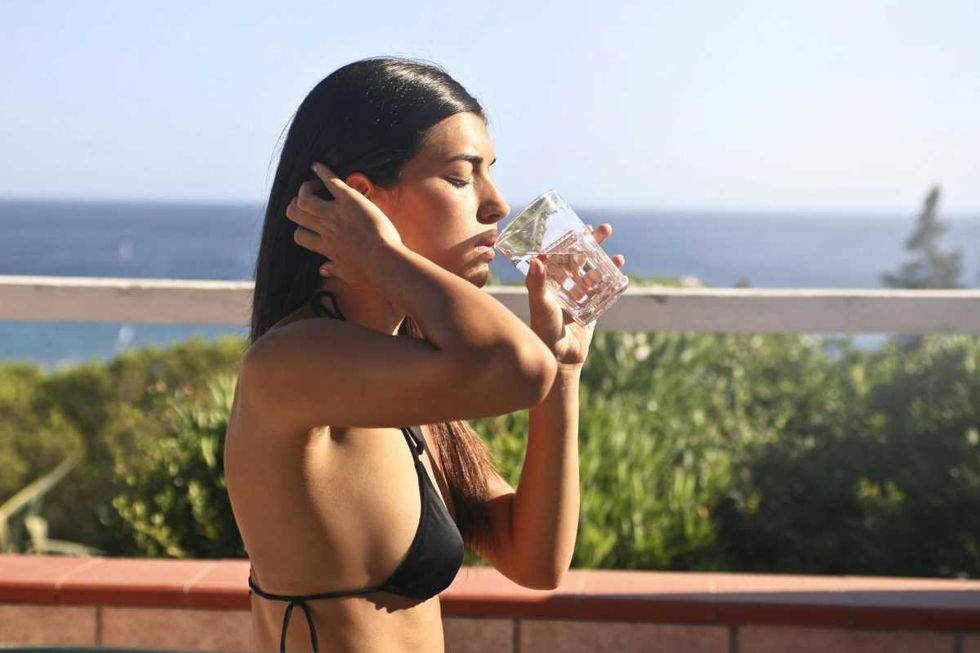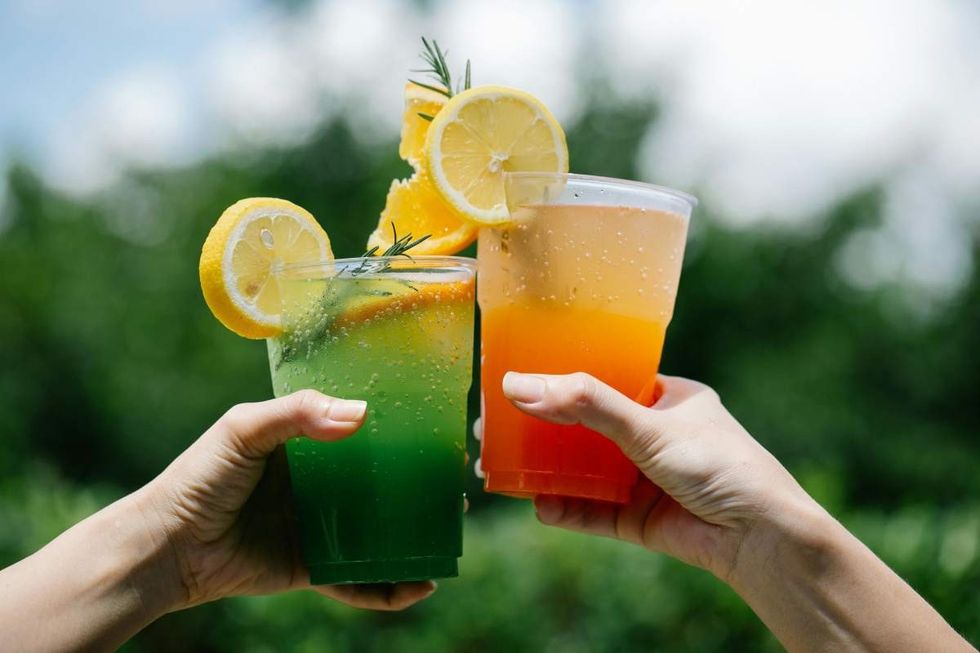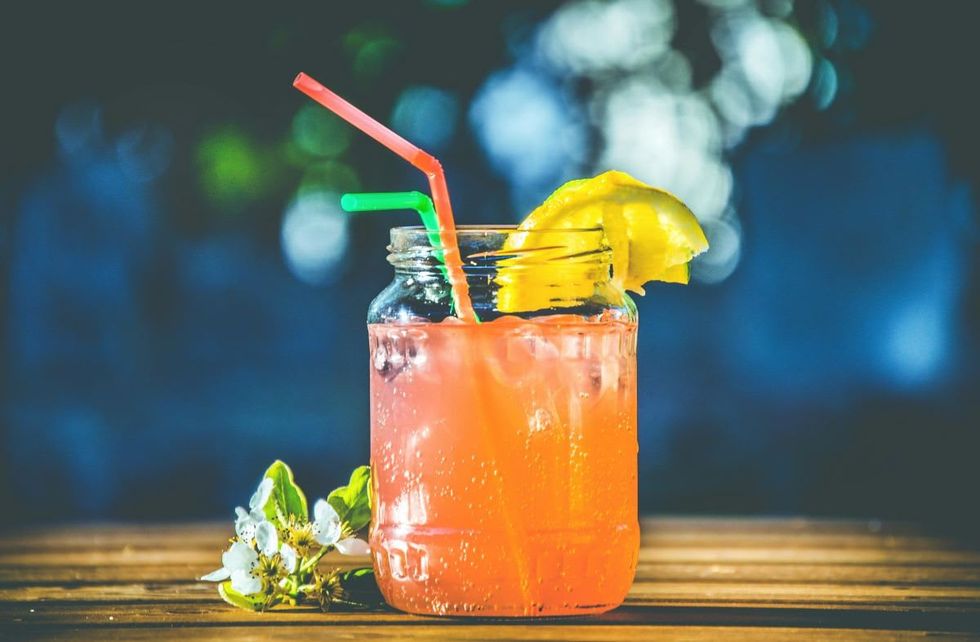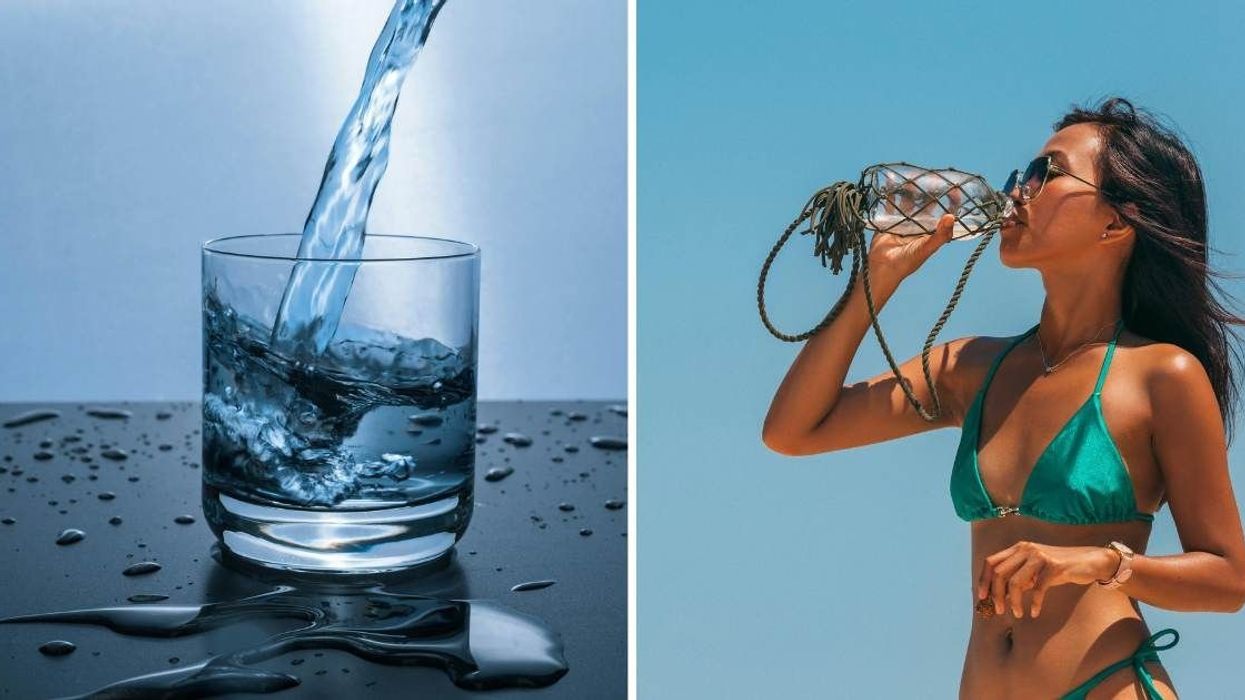Like oxygen, water is essential for life. When the body runs low on water, brain cells and vessels activate a complex process, leading to the familiar itch in the throat that signals thirst and prompts a person to drink. This need becomes even more pressing in hot weather, as the heat seems to drain water from the body. “In the heat, everyone needs more water,” says Dr. Ashley Karpinos, professor of medicine at Vanderbilt University Medical Center, according to Time Magazine.

Parvinder Sagoo, lead pharmacist and health adviser for Simply Meds Online, tells The Independent that it’s important to drink more water than usual in hot weather because the body loses fluids at a faster rate. “Your body is losing liquids through sweat and perspiration, and water helps replace these vital fluids,” he explains. “You are more likely to become dehydrated when it’s hot, so drinking water in hot and humid weather can help counter dehydration. Water also helps lower body temperature.”
“If you’re working, exercising, or are otherwise active in hot weather, a good rule of thumb is to drink eight ounces of water every 15 to 20 minutes during the physical parts of your day,” Karpinos tells Time Magazine. However, sometimes drinking sufficient water is not enough to hydrate the body. Karpinos and experts reveal other factors that play important roles in good hydration.

Dr. Dana Cohen, an integrative medicine practitioner in New York City, told Time Magazine that sometimes it isn’t enough for a person to drink ample water in hot weather; it's also important to look at simple biomarkers, like how often they are urinating. “If you’re not getting up and going to the bathroom every two or three hours, you’re not well-hydrated,” she says, and adds, “That is truly the best way to do it—not looking at your urine color, not pinching your skin.”
In addition to this test, Karpinos offers another tip. She says that even though plain water is the best drink when temperatures soar outside, there are always alternative beverages to hydrate the body. She recommends drinking something with electrolytes. Cohen agrees and says that coconut water is a good option as it contains natural electrolytes. Douglas Casa, professor of kinesiology at the University of Connecticut tells CNBC that salty foods like soups, pretzels, and peanuts also help restore electrolytes. Plus, drinks with sodium content are also good for better-retaining fluids in the body.

A 2016 study published in the American Journal of Clinical Nutrition also tested how well other beverages perform in hydrating the body. The researchers tested a wide range of beverages including sparkling water, soda, diet soda, hot and iced tea, beer, orange juice, coffee, sports drinks, skim and full-fat milk, and an oral rehydration solution. They found that nearly all these beverages have the same hydrating effect, especially cow’s milk which contains sodium and electrolytes and is therefore good for quelling the thirst of a parched body.

However, drinks with alcohol and caffeine content should be avoided, Lina Begdache, professor at Binghamton University told Time Magazine. She said that these drinks can interfere with the body’s ability to regulate its core temperature. Alcohol should be completely avoided and coffee shouldn’t be consumed over four cups. An additional tip, Karpinos suggested, is to add lots of water-rich foods to the diet. These can include fresh fruits and vegetables like watermelon, cantaloupe, berries, peppers, lettuce, and cucumbers, plus mint leaves and orange slices. Cohen adds smoothies to the list, as well as chia seeds and flax seeds, which have high fiber content.

According to USGS, up to 60% of the human adult body is water. The properties of water enable the body to maintain its blood flow, transport nutrients, and minerals throughout the body, lubricate and cushion the joints, metabolize carbohydrates and proteins, and eliminate waste. So, drinking water is the basic minimal requirement for everyone; however, Cohen also warns against “overhydration.” Drinking too much water can be as harmful as drinking too little. Too much water in the body can lead to muscle cramps, fatigue, and even seizures. But when consumed in accurate quantity, a hydrated body paves the way for a healthy body.





















 There are plenty of low or no-cost date ideas.Canva
There are plenty of low or no-cost date ideas.Canva Couples can energize their relationship by finding bonding moments that reignite their wonder.Canva
Couples can energize their relationship by finding bonding moments that reignite their wonder.Canva



 A family holding hands.
A family holding hands.